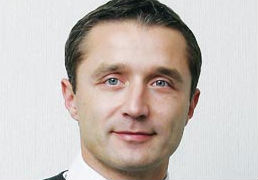Erste Group Savings Barometer: Most people in CEE would only go into debt to purchase a flat or a house |
Autor: Bancherul.ro
2012-10-29 17:29 |
|
 Erste Group's latest CEE Savings Barometer, published today, shows that saving money is important to more than three quarters of the people in CEE, said the bank in a statement.
Erste Group's latest CEE Savings Barometer, published today, shows that saving money is important to more than three quarters of the people in CEE, said the bank in a statement.
"Compared to some years ago saving money has significantly increased in importance for most people in our region. This is good news as it supports low household indebtedness and also helps to boost the liquidity of the financial sector", says Martin Škopek (photo), head of retail at Erste Group. Every other person in CEE is used to regularly putting money aside. Two thirds of Czechs, Slovaks, Hungarians, Romanians, Croats and Serbs save as soon as they have some spare money.
Most people who were interviewed as part of the survey said they save for financial backup, pension provisions, home acquisitions or renovations. Poles and Slovaks are the region's saving champions putting aside 15% resp. 12% of their monthly net income, followed by Austrians, Germans and Czechs with 9%. By comparison, Britons saved just 7%, although their income levels remained broadly stable.2
Savings books and building society savings are the most popular products
Austrians and Czechs seem to be little impressed by the fact that their governments substantially cut the building savings subsidies as part of the austerity packages. As a result, 67% of Austrians and more than half of Czech savers remain faithful to their building society savings. However, three quarters of CEE savers are worried that local currencies will devaluate and therefore saving money will pay off less in the future. Almost three quarters of Polish, Austrians and Germans are anxious about high inflation and a decrease in purchasing power.
CEE savers are less satisfied with their savings compared to Austrians and Germans
Only 20 to 30% of CEE citizens are satisfied with the amount they are currently able to save compared to more than half of Austrians or Germans. The least satisfied are Ukrainians followed by Serbs and Hungarians. This perception is symmetrical with people's financial situation. While most Austrians and Germans think their personal financial circumstances are quite good, only 16% of people in CEE are satisfied with their financial standing. 40% of them say their situation is "so-so".
In nominal terms, Germans lead the way (EUR 178 saved per month), followed by Austrians (EUR 164), Poles (EUR 90), Slovaks (EUR 83) and Czechs (EUR 78). The barometer reveals a rather significant gap, with Hungarians, Ukrainians, Serbs, Croatians, Montenegrins and Romanians putting aside less than EUR 50 per month.
In the mid-term, more than half of Czechs, Slovaks, Hungarians, Croats and Serbs believe they will save more or as much as today in five years' time. 25% of Britons said they are less likely to save over the third quarter 2012 and nearly half (49%) of them said the amount won't change.2 At present, 8 out of 10 Serbs, Romanians and Hungarians feel personally affected by the negative economic situation in their countries, whereas less than half of the Czechs and Austrians felt the impact of the global financial crisis.
Most people in CEE would only go into debt to purchase a flat or a house
"More than half of the people in CEE say there are very careful when it comes to going into debt. Most of them would only do so to purchase a flat or a house and go either for a bank loan or borrowing from their family", explains Škopek. However, some traditions are not spoiled by the lack of money: Almost one third of Polish people say they would take a loan or pay by installments when it comes to a wedding.
Banks expected to take care of financial education
More than half of the survey respondents in all 12 countries where the study had been conducted feel insufficiently informed in terms of financial topics. Almost two thirds of Czechs and Slovaks expect that children should be taught how to deal with money at the latest in elementary school. A vast majority of people in CEE wants to be better informed about economy and finance in general. Every second Romanian thinks it is very important that banks should engage in financial education for both adults and children. Almost 90% of all respondents think a bank should offer adults the opportunity to improve their knowledge on finance and economy topics.
|
|

